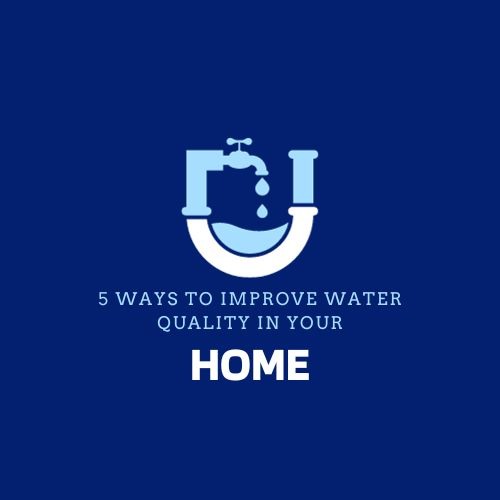From spotty glassware to latherless soap to discoloured laundry, the impacts of hard water go past its unpleasant taste. Clean drinking water may not be available to everyone, but knowledge is!
If you’re a concerned homeowner looking for ways to improve the water quality in your home with standard water heater or a tankless water heater, know that you have options.
You don’t have to deal with unclean or hard water forever — a water filtration or softening device paired with some good habits will help you attain the water quality you deserve:
1. Replace Your Water Filter Regularly
A water softener system is a must-have in some households, but a mistake many make is forgetting to maintain the system.
To keep your water softener running at peak efficiency, follow the user manual or guide that came with your water softener and be sure to change the filter as required. Over time, residue from calcium, magnesium, and other elements in your hard water can build up in your water heater or water softener.
Be sure to have a replacement filter on hand before you need it. This will ensure a seamless transition when you need to switch out the old filter in a crunch, like Monday morning in a busy household.
The right water softener can not only drastically improve the quality of your drinking water — it can also reduce the wear and tear on your plumbing, pipes, and faucets from years of hard water! Before investing in one of these systems yourself, read these reviews of the best water softeners of 2019 to help you make an educated decision.
2. Get a Water Testing Kit
If your household relies on a well, private water supply, or a CWS with a spotty track record, keeping a water testing kit on hand could save your life and that of your loved ones.
A water testing kit can be obtained from most hardware stores or department stores. Check out the EPA’S guide to home water testing for more information about water testing kits.
3. Keep Bottled Water or a Water Dispenser Available
If hard water is a consistent problem in your area and the municipal water is simply unreliable, it’s definitely worth it to invest in a water dispenser or water bottle service. Whether it’s for your business or home, a water dispenser makes clean healthy drinking water available on demand.
There are several quality brands of water dispensers to choose from, so do your research online to figure out what type best suits your needs.
If time and convenience are your priority, but you still need healthy drinking water on the go, simply storing frozen cold water in BPA-free bottles in your freezer can also work.
4. Use Stainless Steel or BPA-Free Plastic Water Bottles
Even with a filtering system for hard water in your home, clean water poured into a dirty cup is still, well, dirty water. Plastics that are not BPA-free can contain harmful chemicals. Water can also absorb iron from ferrous metals which, over time, can produce an undesirable taste and ruddy complexion to your water.
Stainless steel water bottles and BPA-free plastics are durable and much safer alternatives for storing water in your home. Be sure to wash these containers thoroughly after each use to keep them contaminant free.
5. Use Organic Mulch in Your Garden to Counteract the Effects of Hard Water
Watering your beloved begonias with hard water will leave them wilted and sagging. Even if you are using a water filter, your garden hose may be rusted from years of use. Water passing through it will absorb ferrous elements that are ultimately transferred to the soil.
Natural organic mulch works very well as topsoil. Spread around the base of shrubs, plants, and trees, the organic mulch retains moisture and adds valuable nutrients to the soil. Mulch can’t improve the quality of the water, but it can fortify the soil against the damaging effects of hard water.

